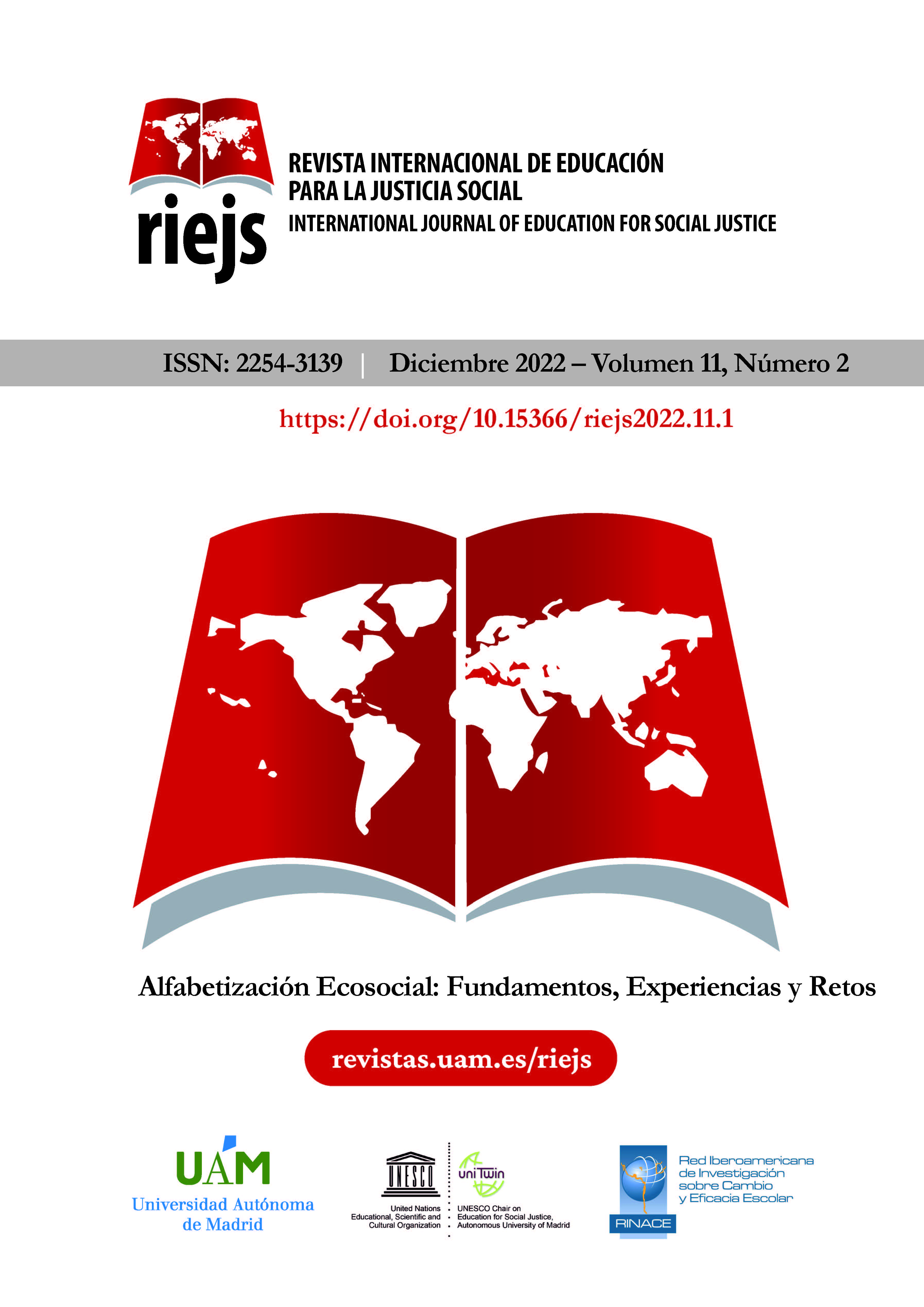The Ecosocial Competence in a Context of Multidimensional Crisis
Keywords:
Competencia ecosocial, educación para la transformación social, crisis multidimensional, currículo escolar
This work is licensed under a Creative Commons Attribution-NonCommercial-NoDerivatives 4.0 International License.
Abstract
School contexts are directly affected by the multidimensional crisis we live in today. In the face of this crisis, education can assume and integrate the problems as they happen, and integrate them into the student learning scheme from a critical and active position, or, on the contrary, not position itself, and remain in reproductive inertia of the social order. Ecosocial competence is essential to place sustainability and environmental justice at the centre of educational action, deepening democratic processes and social justice, which are fundamental elements for moving towards an educational paradigm capable of engaging with the praxis of social change. From curricular content to methodological strategies and evaluation, eco-social competence completely crosses the entire curriculum design to be an essential part of the teaching-learning process in the last levels of concretion. Intending to draw utopias to build a desirable present, eco-social competence acquires a fundamental role as a way to transcend a civilization where people have alternative collective objectives
Downloads
References
Booth, T. y Ainscow, M. (2015). Guía para la educación inclusiva. Desarrollando el aprendizaje y la participación en los centros escolares. FUHEM y OEI.
Cortina, A. (2003). Ciudadanos del mundo. Alianza.
De Blas, A. (2018). 71 propuestas para educar con perspectiva de género. FUHEM.
Díaz-Salazar, R. (2016). Educación y cambio ecosocial. Del yo interior al activismo ciudadano. En R. Fernández y L. González (Eds.), En la espiral de la energía. Baladre.
Flecha, R. (1997). Compartiendo palabras. Paidós.
Freire, P. (2005). Pedagogía del oprimido. Siglo XXI.
González, L., Gómez, C. y Morán, C. (2022) Educar con enfoque ecosocial. Análisis y orientaciones en el marco de la LOMLOE. FUHEM.
Gutiérrez, J. M. (2018). Invitación a la educación ecosocial en el Antropoceno. Bubok Publishing.
IPBES. (2019). Global assessment report on biodiversity and ecosystem services of the intergovernmental science-policy platform on biodiversity and ecosystem services. IPBES.
IPCC. (2021). Climate change 2021: The physical science basis. IPCC.
McLaren, P. (2016). Recreando la educación emancipadora. Hariak.
Oliveros, M. E. (2018). Centros educativos transformadores. Oxfam-Intermon.
WB. y EGPS. (2017). The growing role of minerals and metals for a low carbon future. World Bank.
Worldwatch Institute. (2017). Educación ecosocial. FUHEM.
